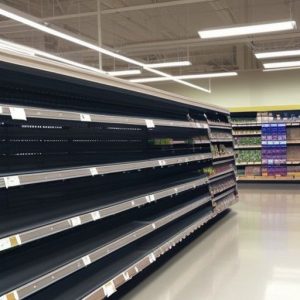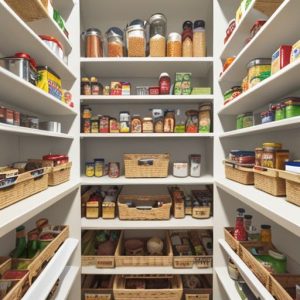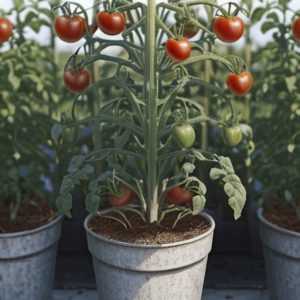 In the complex and interconnected web of our global food system, a multitude of challenges have emerged, threatening the very foundation of our sustenance. These challenges, often subtle and insidious, are the result of a confluence of factors, from environmental or “climate” issues and resource depletion to geopolitical tensions and corporate greed.
In the complex and interconnected web of our global food system, a multitude of challenges have emerged, threatening the very foundation of our sustenance. These challenges, often subtle and insidious, are the result of a confluence of factors, from environmental or “climate” issues and resource depletion to geopolitical tensions and corporate greed.
One of the most pressing challenges facing the food supply chain is the ongoing “climate crisis” fraud. Extreme weather events, such as droughts, floods, and heatwaves, have been used by powerful people and entities to oppress humanity with increasingly harsh and autocratic measures worldwide — all in the name of “climate crisis.” In many regions, farmers are struggling to adapt not only to extraordinary weather events and conditions, but also to the dictates of the climate-fear agenda which put restrictions in place which further burden the food supply and create more food insecurity.
Another significant challenge is the depletion of farmland through the use of modern agricultural techniques. This has lead to widespread adoption of unsustainable agricultural practices, such as monoculture farming and the excessive use of chemical fertilizers and pesticides, which further exacerbate environmental degradation. These practices are unsustainable because they are destroying farmland and reducing the nutritional value of the food people eat.
Geopolitical tensions and conflicts have also had a profound impact on the food supply chain. Sanctions, trade wars, and political instability have disrupted global trade networks, leading to shortages and price volatility. This has made it difficult for countries to access essential food commodities, particularly those that are heavily reliant on imports.
Corporate consolidation and control over the food system are another major concern. A small number of large corporations now dominate the production, processing, and distribution of food, leading to a lack of competition and potentially higher prices for consumers. This concentration of power also raises questions about the quality and safety of our food, as these corporations may prioritize profit over public health.
Lastly, the COVID-19 pandemic scare has highlighted the fragility of our global food system under the burden of fear campaigns. Lockdowns, labor shortages, and supply chain disruptions have led to empty shelves in supermarkets and rising prices for many staple foods. This has underscored the need for more resilient and localized food systems that can better withstand future shocks.
The challenges facing the food supply chain today are complex and interconnected, requiring a multifaceted approach to address them. By tackling issues such as the fake “climate change” scare, resource depletion, geopolitical tensions, corporate control, and the impacts of pandemics (whether real or fake), we can work towards building a more sustainable and resilient food system for all.














Be First to Comment